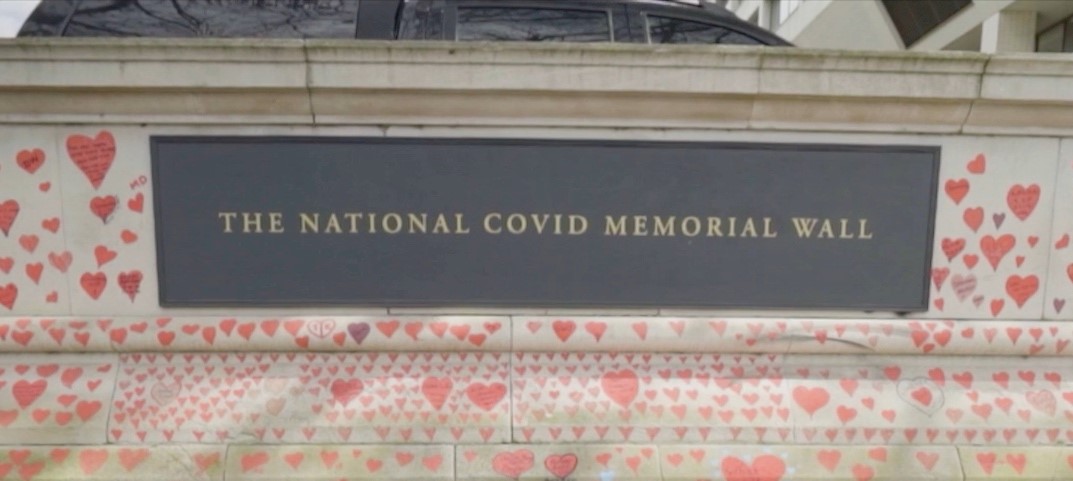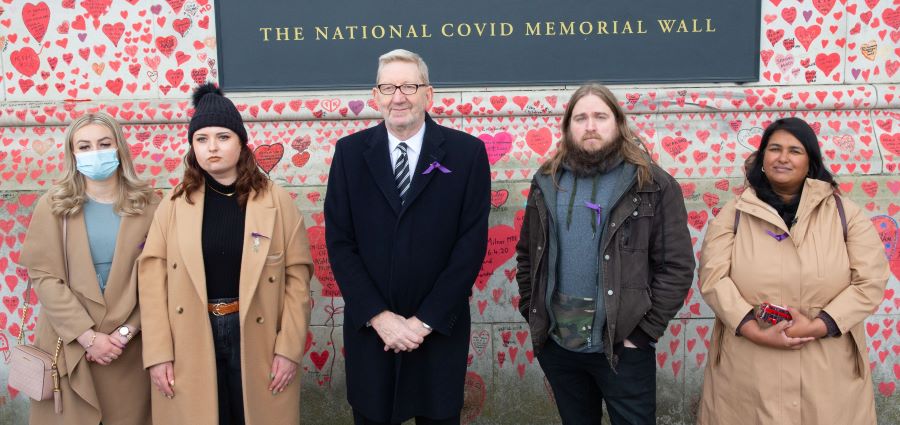‘We didn’t come to work to die’
In part 3 of UNITElive’s International Workers’ Memorial Day series, we speak to Unite shop steward Neal Hodkinson about his fight against asbestos.
While accidents in the workplace are far too common and often end in fatalities, it is actually a silent, mostly latent disease that is the deadliest killer at work.
Each year in the UK, about 2,500 people die from mesothelioma, an incurable cancer of the lining of the lung caused by exposure to asbestos. And about a 1,000 more people will die from other asbestos-related diseases.
Even though the tiny toxic fibres in construction materials were mostly banned in 1999 — which significantly reduced the risk of illness or death for people working in sites built after 2000 — asbestos is still found in older buildings and continues to pose a threat.
Unite (formerly Ucatt) senior shop steward Neal Hodkinson has worked in construction for Nottingham City Homes for over thirty years, and he said that in the early days, he and his colleagues were told working around asbestos was entirely safe.
“What makes me so angry is that the dangers of asbestos were well-known and documented even at that time, but companies hid the truth from us and there weren’t laws in place to protect us,” he explained.
Indeed, the UK has one of the highest rates of mesothelioma in the world because it didn’t ban asbestos until years after most developed countries had.
Safety masks, Hodkinson pointed out, were used at work sites back then but they were essentially useless.
“There were gaps in the masks – we often found that just as much dirt would collect inside the masks as outside.”
Most people who develop mesothelioma do so decades after exposure to asbestos.
‘Horrific’
Hodkinson himself has lost two colleagues to the deadly cancer. He visited one, a fellow Ucatt shop steward, shortly before his death at his home.
“It is an absolutely horrific way to die,” he said. “But he stayed positive – he understood and accepted the inevitabilities of the disease and went with his head held high.”
Another colleague, a new Ucatt rep, developed the cancer and it progressed very quickly.
Hodkinson said he visited his colleague towards the end in hospital.
“I didn’t recognise him at all. It was really hard seeing him like that – he was a big, tough guy who’d been totally eaten up by the disease.”
Hodkinson said the moment was bittersweet because for the first time ever, he saw his daughter, who is a nurse, at work in the same hospital where he was visiting his dying colleague.
“It was a strange mix of pride at seeing my daughter in uniform helping others and then a sense of profound sadness seeing my friend and colleague dying from a disease that could have been prevented and knowing that I couldn’t do anything for him.”
Their deaths are also unnerving, Hodkinson explains, because you always live with the fear that you could be next.
For Hodkinson the fear has been amplified by the discovery that he has scarring in the lining of his lungs, known as pleural plaques. Pleural plaques, which often have no symptoms, indicate heavy exposure to asbestos.
“I discovered I had pleural plaques by accident, which is how most people discover them because there are usually no symptoms,” he notes.
Hodkinson had gone to hospital after sustaining a minor injury in the chest during a mixed martial arts training session. An X-ray revealed the deep scarring in his lungs after years of breathing in asbestos.
“Above all I just feel this heavy sense of regret – that none of this had to happen to any of us. I wish I could go back but at the time you aren’t necessarily thinking about whether the working environment you’re in is safe. All we were thinking about is getting on with the job so we could feed our families.”
What helps Hodkinson cope now is becoming involved in campaigning on asbestos awareness and fighting for health and safety through his union Unite.
“We can’t go back in time so the best thing I can do now is work to help others,” he says.
And trade unions, he believes, are the best vehicle for doing just that.
“We must remember that all campaigning to ban asbestos and bring justice to affected workers originated in the trade union movement. Nobody else was doing anything about the problem except the trade unions.”
International Workers Memorial Day on Friday (April 28) takes on for Hodkinson a very personal significance.
“Our people – the working classes – didn’t come to work to die,” he said. “So for me the purpose of the day is two-fold – to remember those who’ve died and to fight for those who are living,” he says. “Having a specific day like Workers Memorial Day helps to focus our movement – to remind us that we still have much more work to do.”
Find out more about Unite’s International Workers Memorial Day events on Friday on our web page here.
If you think you’ve been exposed to asbestos, find out more about Unite’s asbestos register and access other asbestos-related resources here. Check out too a joint union campaign on eliminating asbestos in schools.
 Like
Like Follow
Follow


